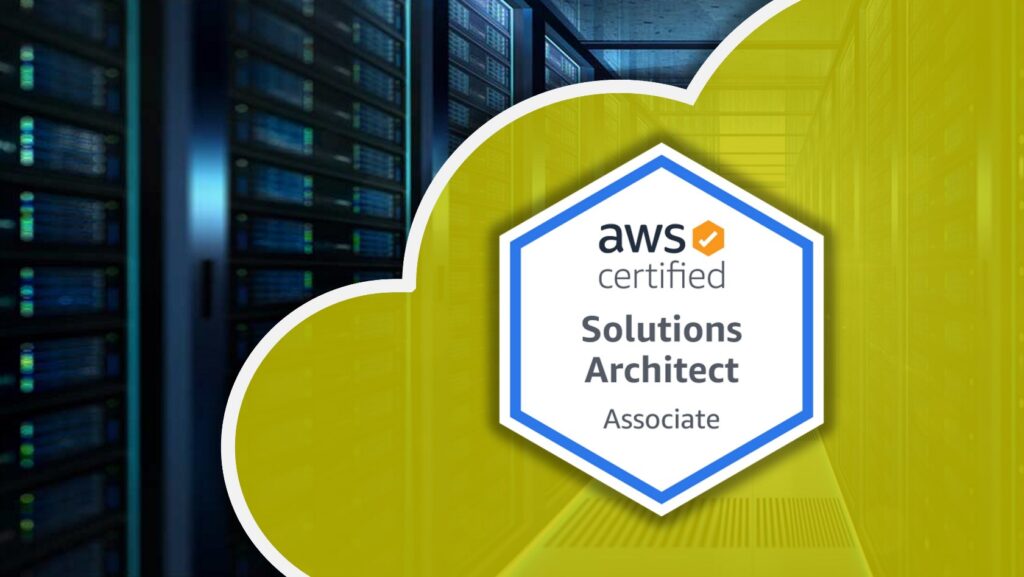Ultimate AWS Certified Solutions Architect – Associate Cheat Sheet
If you are getting ready for the AWS Certified Solutions Architect – Associate exam, this cheat sheet will help you prepare. Let’s look at the important things you need to know to pass this certification.
Key Takeaways
| Topic | Key Points |
|---|---|
| Exam Format | Multiple-choice, 130 minutes, passing score ~72% |
| Core Services | Compute, Storage, Database, Networking, Security |
| Well-Architected Framework | 5 pillars: Operational Excellence, Security, Reliability, Performance Efficiency, Cost Optimization |
| Key Skills | Designing resilient architectures, implementing security best practices, optimizing costs |
| Preparation Tips | Use official AWS materials, practice exams, hands-on experience |
I. Introduction to AWS Certified Solutions Architect – Associate
The AWS Certified Solutions Architect – Associate certification is important in cloud computing. It shows you can design and build secure, high-performing systems on AWS. AWS Solutions Architect Associate certification is a good start if you know some AWS Cloud or have a strong IT background.
Here’s why this certification matters:
- It’s one of the top 10 certifications of 2023
- It shows you can design cost-effective and efficient solutions
- It can make you feel more confident in the tech world
- It proves you can match technical solutions with business needs
- It can help you get better-paying jobs in cloud computing
Understanding these pillars will help you answer scenario-based questions in the exam. For each pillar, be ready to:
II. Key Exam Information
Before you start studying, it’s good to know what to expect. The AWS Certified Solutions Architect – Associate exam is tough, but you can pass it with good preparation.
Here’s what you need to know about the exam:
- It’s a multiple-choice test with scenario-based questions
- You have 130 minutes to finish it
- You need about 72% (720 out of 1000) to pass
- Your certification lasts for three years
- The exam tests what you know about designing resilient, secure, and cost-effective architectures
- Questions often use real-world scenarios where you need to apply your AWS knowledge
III. Essential Prerequisites
Before you start studying, make sure you have the right background. AWS suggests having at least one year of hands-on experience with AWS services. But don’t worry if you’re not there yet.
Here’s what you should aim to know:
- Basic understanding of IT services and how they work on AWS
- Experience with compute, networking, storage, and databases
- Knowledge of AWS security and compliance basics
- Familiarity with the AWS global infrastructure and main services
- Understanding of basic architectural principles for building on AWS Cloud
- Ability to identify AWS services that meet specific technical needs
IV. Core AWS Services to Master
To pass the exam, you need to know AWS services really well. Here are the main services you should focus on:
Core AWS Services for Solutions Architect Associate
Each of these services is important for designing AWS solutions. Make sure you understand how they work and when to use them. For example:
- Compute Services: Know the differences between EC2 instance types and when to use serverless options like Lambda
- Storage Services: Understand when to use S3, EBS, and EFS, including how they perform and cost
- Database Services: Be familiar with both relational (RDS) and NoSQL (DynamoDB) options, and when to choose each
- Networking: Know how to design VPCs, including subnets, route tables, and security groups
- Security and Identity: Understand IAM roles, policies, and how to keep AWS resources safe

V. AWS Well-Architected Framework
The AWS Well-Architected Framework is a big part of the exam. It’s about building secure, high-performing, resilient, and efficient systems. You need to know the five pillars:
- Operational Excellence: How to run and monitor systems to deliver business value
- Security: How to protect information, systems, and assets
- Reliability: How to make sure a system works correctly and consistently
- Performance Efficiency: How to use computing resources efficiently
- Cost Optimization: How to avoid unnecessary costs
- Explain why it’s important in cloud architecture
- Identify AWS services that support it
- Apply the principles to real-world scenarios
VI. Designing Resilient Architectures
One of the most important skills for an AWS Solutions Architect is designing systems that can handle failures. You need to know how to create systems that stay up and running even when things go wrong.
Key concepts to master:
- Multi-AZ deployments: How to spread resources across multiple Availability Zones for better reliability
- Auto Scaling groups: How to automatically adjust the number of EC2 instances based on need
- Elastic Load Balancing: How to spread incoming traffic across multiple targets
- Amazon CloudWatch for monitoring: How to set up alarms and respond to system changes
- Disaster Recovery strategies: Know about backup and restore, pilot light, warm standby, and multi-site approaches
- Service-specific features: Know how services like RDS Multi-AZ and S3 cross-region replication help with resilience
VII. Security Best Practices
Security is super important in AWS. You need to know how to protect data, manage access, and follow the rules. Here are some key areas to focus on:
- IAM policies and roles: Understand how to give people only the access they need
- Encryption at rest and in transit: Know how to use AWS KMS, CloudHSM, and SSL/TLS certificates
- Network security groups and ACLs: Learn how to control traffic in and out of instances and subnets
- AWS Key Management Service (KMS): Understand how to create and manage encryption keys
- AWS WAF and Shield: Know how to protect web applications from common attacks
- AWS Config and CloudTrail: Understand how to check and monitor AWS resource settings and API calls
While the exam focuses on AWS, knowing general cloud security principles helps.
VIII. Cost Optimization Strategies
As a Solutions Architect, you need to know how to design systems that don’t cost too much. AWS has several tools and strategies to help you save money:
- Reserved Instances for predictable workloads: Understand how to use RIs to get big discounts on EC2 instances
- Spot Instances for flexible start and end times: Know how to use Spot Instances for workloads that can handle interruptions
- AWS Cost Explorer for analyzing your spending: Learn how to use this tool to see and manage your AWS costs over time
- AWS Budgets for setting cost limits: Understand how to set budgets and get alerts when costs go over limits
- Right-sizing: Know how to pick the most cost-effective and efficient resources for your workloads
- Storage tiering: Understand how to use S3 storage classes and lifecycle policies to save on storage costs
Remember, the cheapest option isn’t always the best. You need to balance cost with performance and reliability. Think about things like data transfer costs, I/O operations, and how choices might affect how well your application runs when making cost decisions.
IX. Exam Preparation Tips
Now that you know what to study, here’s how to study:
- Use official AWS training materials and whitepapers: These are the most accurate sources of information
- Take practice exams to get used to the question format: This will help you manage your time during the real exam
- Get hands-on experience with AWS services (use the free tier!): Nothing beats actually using the services
- Join study groups or online forums to discuss concepts: Explaining things to others can help you understand better
- Create a study schedule and stick to it: Studying regularly is key to preparing for the exam
- Focus on understanding concepts rather than memorizing facts: The exam tests how you apply knowledge to scenarios
- Review AWS case studies and customer success stories: These can show you how AWS solutions work in real life
X. Post-Certification Career Opportunities
Congratulations! You’ve passed the exam. Now what? The AWS Certified Solutions Architect – Associate certification can open up many job opportunities:
- Cloud Architect: Design and deploy scalable and reliable applications on AWS
- DevOps Engineer: Help development and operations teams work together using AWS tools
- Cloud Consultant: Help businesses use AWS services effectively
- Systems Administrator: Manage and maintain AWS infrastructure for organizations
- Cloud Security Specialist: Focus on keeping AWS environments safe
- Data Engineer: Design and build data systems using AWS services
Many companies are looking for AWS-certified professionals, and these jobs can pay well. Some reports say certified AWS professionals can earn over $100,000 a year! The certification also shows you’re committed to learning and that you’re an expert in cloud technologies, which can help you move up in your career faster.
Conclusion
The AWS Certified Solutions Architect – Associate exam is tough, but you can pass it if you prepare well. Remember to focus on the main services, understand the Well-Architected Framework, and get hands-on experience. Keep up with new AWS services and best practices, because cloud technology is always changing. If you study hard and consistently, you’ll be on your way to becoming a certified AWS Solutions Architect. Good luck with your certification journey, and be sure to checkout our AWS course for this certification here.


